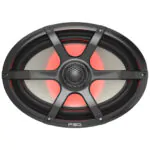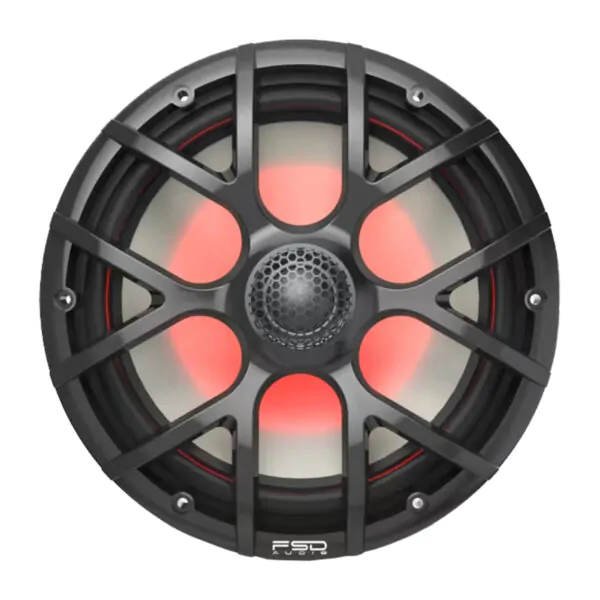In the demanding world of construction, mining, and heavy engineering, the operational environment is defined by noise, vibration, and exposure to the elements. For the operators of cranes, loaders, excavators, and agricultural machinery, an effective and reliable audio system is not a luxury, but a necessity for concentration, communication, and overall well-being. Standard automotive or residential speakers simply cannot survive the relentless punishment of such industrial settings. This is where the specialized design and rugged construction of a Marine Speaker become indispensable. Originally engineered for the harsh, corrosive, and wet conditions of boats and yachts, these speakers possess the unique durability and acoustic properties required to perform flawlessly where standard audio equipment inevitably fails.
This comprehensive guide will delve into the engineering principles that set the Marine Speaker apart, highlighting its distinctive features and demonstrating why its use extends far beyond the waterfront to provide significant, tangible value to the heavy machinery and engineering sector. Understanding the critical differences is key to making an informed investment that ensures long-term performance and reliability in the most challenging work conditions.
The Engineering Imperative: Building a Resilient Marine Speaker

A Marine Speaker is fundamentally different from its land-based counterparts due to its core mission: to withstand constant environmental assault without compromising sound quality. This distinction begins with the materials and structural design, which are selected for their resistance to specific destructive forces prevalent in both marine and industrial settings.
1. Unyielding Resistance to Moisture and Water Intrusion
The most obvious feature is its superior water resistance. While a heavy equipment cab might be enclosed, components are still exposed to high humidity, condensation, and the aggressive wash-down procedures used in maintenance. Standard speakers, which often utilize porous paper cones and traditional surrounds, absorb moisture, leading to cone warping, material decay, and eventual failure.
In contrast, Marine Speakers feature cones and surrounds made from highly water-resistant and non-hygroscopic (non-water-absorbing) materials. Polypropylene, treated fabrics, or rubber-coated materials are commonly used for the cone, while the surrounds—the flexible ring connecting the cone to the speaker basket—are typically made of UV-resistant Santoprene or durable rubber. Furthermore, the internal components, including the voice coil connections and the magnet structure, are often protected by sealed gaskets and conformal coatings on the circuit board, minimizing the risk of internal corrosion. The hardware itself, which secures the speaker, is usually stainless steel or a corrosion-resistant alloy, ensuring that rust will not degrade the mounting over time.
2. Protection Against UV Rays and Extreme Temperatures
Heavy machinery often operates outdoors for extended periods under intense sunlight. Exposure to ultraviolet (UV) radiation rapidly degrades the plastic and rubber components of conventional speakers, leading to discoloration, cracking, and brittleness. A high-quality Marine Speaker incorporates UV-resistant polymers and specialized treatments in its grille, basket, and cone materials. This crucial feature prevents the materials from breaking down structurally, guaranteeing the speaker’s aesthetic and functional integrity over a long service life, regardless of whether it is installed in an open-air cabin or on the exterior of a vessel or machine.
Additionally, the robust design must accommodate the drastic temperature swings experienced in industrial environments—from freezing cold nights to sweltering summer days. Marine Speakers are constructed with materials that maintain their flexibility and structural stability across a wide thermal range, preventing the expansion and contraction that can cause internal components to separate or warp.
Acoustic Performance in Open-Air and Noisy Environments
The challenges of sound projection are equally important in the design of a Marine Speaker. A boat deck, like an open-air mining site or a loud construction zone, lacks the enclosed, acoustically controlled environment of a car interior. The speaker must contend with high levels of ambient noise—wind, engine drone, and the sounds of working machinery—and project sound effectively across open space.
To overcome these acoustic obstacles, Marine Speakers are often designed for higher sound output and greater efficiency.
High Sensitivity and Power Handling: These speakers often feature a higher sensitivity rating, meaning they can produce louder sound with less power. Simultaneously, they are built with robust voice coils and magnet structures, giving them a high RMS (Root Mean Square) power handling capacity. This capability allows the operator to drive the speakers louder—necessary to overcome a persistent 85 dB machine noise—without introducing distortion or risking speaker failure. The ability to maintain clear, undistorted audio at high volume levels is a non-negotiable requirement for operator comfort and clear communication in industrial settings.
Optimized Frequency Response: Unlike standard speakers tuned for a small, reflective space, the best Marine Speakers are tuned to project clear high frequencies across a wider dispersion pattern. They frequently feature robust tweeters—the small speakers responsible for high notes—that ensure vocals, speech, and the crisp details of music can cut through the environmental background noise, providing the operator with a full, clear, and impactful sound experience.
Tangible Benefits for the Heavy Machinery Operator
Integrating a Marine Speaker system into engineering and industrial equipment yields practical, day-to-day advantages that go directly to operational safety and productivity.
Longevity and Reduced Maintenance Costs: The primary value proposition lies in durability. For machinery that represents a significant capital investment, every component should match that standard of robustness. By choosing a Marine Speaker, companies are selecting a product proven to resist the environmental factors that kill conventional speakers—moisture, salt, UV, and heat. This superior longevity translates directly into reduced downtime for speaker replacement and lower long-term maintenance expenditures.
Enhanced Safety and Focus: Clear audio is a safety feature. In noisy environments, a speaker system capable of projecting clear, non-distorted sound ensures that safety announcements, two-way radio communication, or critical equipment alerts are heard instantly and unambiguously. Moreover, high-quality audio has been proven to mitigate the effects of auditory fatigue. When music is clear and rich, the operator’s brain does not strain to process muffled sound against a backdrop of machine noise. This subtle yet significant reduction in cognitive load enhances focus and alertness throughout long, demanding shifts.
Improved Operator Well-being: Operators spend many hours confined to their cabs. Providing them with a reliable, high-fidelity audio system contributes meaningfully to their job satisfaction and morale. The ability to enjoy clear, full-spectrum music, anchored by the rich sound that a quality Marine Speaker provides, makes the workspace feel more comfortable and less hostile, which is a powerful factor in retaining skilled personnel and encouraging a positive work ethic.
Integration and Installation Considerations for Engineering Vehicles
Successfully deploying Marine Speakers in industrial equipment requires careful planning regarding placement and power.
Secure and Minimal-Vibration Mounting: While the speakers themselves are built to withstand vibration, the mounting must be ultra-secure. Speakers should be mounted to the most rigid panels possible, using the corrosion-resistant hardware provided. In many cases, specialized mounting brackets or compact surface-mount Marine Speakers are utilized to fit into the limited space within a cab or on an exterior roll bar.
Proper Sealing and Wiring: Any cuts made for flush-mount installation must be properly sealed to prevent water intrusion into the panel or enclosure. Furthermore, marine-grade wiring, often tinned copper, should be used for the entire installation. This wiring resists the corrosion that standard copper wiring succumbs to in humid, industrial air, ensuring a reliable electrical connection and consistent power delivery to the speaker for years to come.
In conclusion, the Marine Speaker is a purpose-built audio solution whose rugged features—waterproofing, UV resistance, and high-output acoustic tuning—make it uniquely suited for the rigors of heavy industrial applications. For engineering firms and product users focused on long-term reliability and operator efficiency, the investment in this specialized type of loudspeaker technology is a clear choice, guaranteeing that the audio system will last as long as the machinery itself.
Frequently Asked Questions (FAQ)
Q1: Can I use regular car speakers instead of a Marine Speaker in my excavator?
A1: While technically possible, it is strongly discouraged. Standard car speakers lack the necessary resistance to humidity, UV exposure, and vibration found in industrial environments. They will likely fail prematurely due to cone deterioration, corrosion, or material breakdown, resulting in poor sound quality and the need for frequent replacement.
Q2: What IP rating should I look for in a Marine Speaker for external installation on heavy equipment?
A2: For speakers mounted externally (e.g., on a roll bar or outside the cabin), an IP rating of IPX6 or IPX7 is recommended. IPX6 protects against powerful jets of water (heavy rain/wash-down), and IPX7 offers protection against temporary submersion, ensuring maximum reliability against the elements.
Q3: Does the saltwater resistance of a Marine Speaker benefit land-based heavy machinery?
A3: Yes, absolutely. The corrosion resistance engineered into a Marine Speaker—such as stainless steel hardware and sealed components—is highly beneficial in all industrial settings. It protects against chemical exposure from cleaning agents, acidic rainwater, and the general humidity and condensation that are common in any heavy equipment environment.




I’d need to check with you here. Which isn’t something I usually do! I get pleasure from reading a submit that will make people think. Additionally, thanks for permitting me to comment!
Been messing around on 718betapp recently. Gotta say, the user interface is pretty clean and easy to navigate. Makes finding what you’re looking for a breeze. Give 718betapp a shot if user-friendliness is your jam.
Can you be more specific about the content of your article? After reading it, I still have some doubts. Hope you can help me.